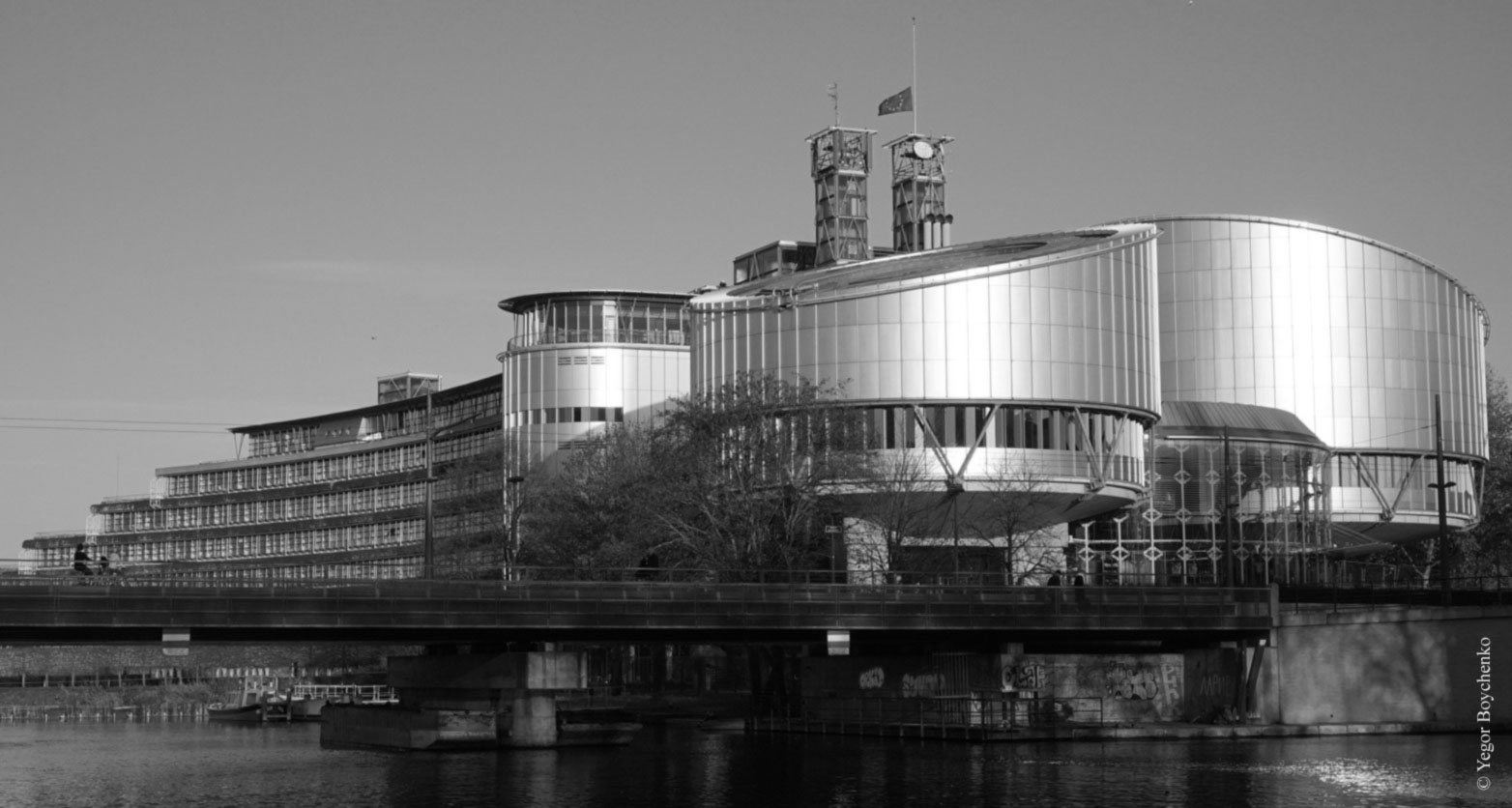List of the successful cases of attorney-at-law Yegor BOYCHENKO before the European Court of Human Rights under the European Convention on Human Rights (the Convention)
Successful cases against Russia:
Violation of Article 3 of the Convention (ill-treatment), awarded compensation – more than 25000 euro.
The ECHR found the violation of Article 8 in view of the secret recording of the applicant’s telephone communications in the context of the criminal proceedings against the applicant in the absence of a judicial authorisation.
Violation of Article 1 Protocol No.1 to the Convention (protection of property), awarded compensation – more than 240 000 euro.
Violation of Article 5 § 3 of the Convention (length of detention), awarded compensation – 2000 euro.
Friendly-settlement as concerns inadequate conditions of detention, payment by the respondent state of the compensation in the amount of 13 000 euro.
Violation of Article 1 Protocol No.1 to the Convention (protection of property).
Violation of Article 1 Protocol No.1 to the Convention (protection of property), awarded compensation – more than 260 000 euro.
Successful cases against Ukraine:
Violation of Article 1 Protocol No.1 to the Convention (protection of property), awarded compensation – 4000 euro.
Violations of Article 3 and 13 (lack of adequate medical treatment in detention) and Article 8 (monitoring of correspondence by the prison administration) of the Convention, awarded compensation – 4000 euro.
Violation of Article 5 § 1 and § 3 of the Convention (unlawfulness and length of detention), awarded compensation – 6000 euro.
Violation of Article 8 of the Convention (eviction of the applicants from their dwellings), awarded compensation – 4500 euro to each applicant.
Violation of Article 1 Protocol No.1 to the Convention (protection of property).
Violation of Article 6 § 1 of the Convention (access to justice).
Violation of 5 § 1 and § 5 of the Convention (unlawfulness of detention and lack of compensation at the national level).
Violation of Article 3 of the Convention (lack of adequate medical treatment in detention), awarded compensation – 7000 euro.
ECHR rules that there was a violation of Article 6 in the procedure for the dismissal of judges for “breach of oath” and the judicial review of the dismissal, and a violation of Article 8 on account that the dismissal did not comply with the requirements of ‘quality of law’ under the Convention. The ECHR awarded the applicant non-pecuniary damages in the amount of 5000 euro.
Violation of Article 2 of the Convention (medical negligence), awarded compensation – 6000 euro.
Violation of Article 5 § 3 of the Convention (length of detention).
Violation of Article 2 Protocol No.4 to the Convention (freedom of movement).
Violation s of Articles 6 § 1 and 13 of the Convention (length of bankruptcy proceedings).
The ECHR ruled that there was a violation of Article 8 due to the unlawful interference with the applicant’s exercise of judicial office as a judge of the High Administrative Court, whose activities were terminated as a result of legislative reform, and due to the domestic authorities’ failure to transfer the applicant to another court in accordance with domestic law in line with the principle of irremovability of judges as well as Article 6 § 1 on account of the applicant’s inability to challenge being prevented from exercising her judicial duties. The ECHR awarded the applicant non-pecuniary damages in the amount of 5000 euro.
Violation of Article 1 Protocol No.1 to the Convention in view of putting the disproportionate burden on the applicant due to the confiscation by the customs of all undeclared cash, awarded compensation – the return of the confiscated cash in the amount of 11 000 euro.
Violation s of Articles 5 § 4 and § 5 (speediness of the review of the lawfulness of the applicant’s detention and lack of compensation at the national level).
Violation of Article 2 in its procedural aspect due to ineffective investigation of the disappearance of the applicants’ father. The ECHR awarded non-pecuniary damages in the amount of 6000 euro.
Violation s of Articles 6 § 1 and 13 of the Convention (length of criminal proceedings), awarded compensation – 7800 euro.
Successful cases against other respondent states:
The ECHR ruled that the applicant’s detention pending his extradition to the Russian Federation and the review of its lawfulness failed to comply with the requirements of Article 5 § 1 and § 4 in view of its length and the length of its review by the Cypriot courts. The ECHR awarded the applicant non-pecuniary damages in the amount of 15 000 euro.
The ECHR ruled that the applicant’s detention pending his extradition to the Russian Federation and the review of its lawfulness failed to comply with the requirements of Article 5 § 1 and § 4 in view of its length and the length of its review by the Cypriot courts. The ECHR awarded the applicant non-pecuniary damages in the amount of 26 000 euro.
The ECHR found violation s of Article 6 § 1 in its criminal aspect and Article 6 § 3 (c) and (d) of the Convention in that the domestic courts failed to give sufficient reasons for their refusal to hear a main defence witness; the courts relied on statements of absent witnesses, whose evidence carried significant weight, without sufficient counterbalancing factors to compensate for handicaps caused to the defence; the domestic courts gave insufficient reasons for complete exclusion from remaining trial of applicants for allegedly disorderly conduct.
Friendly-settlement agreement as concerns the applicant’s complaints under Article 5 §§ 1 and 4 of the Convention concerning the unlawfulness of her detention pending extradition, and the length of the habeas corpus appeal proceedings; payment by the respondent state of the compensation in the amount of 10 400 euro.
